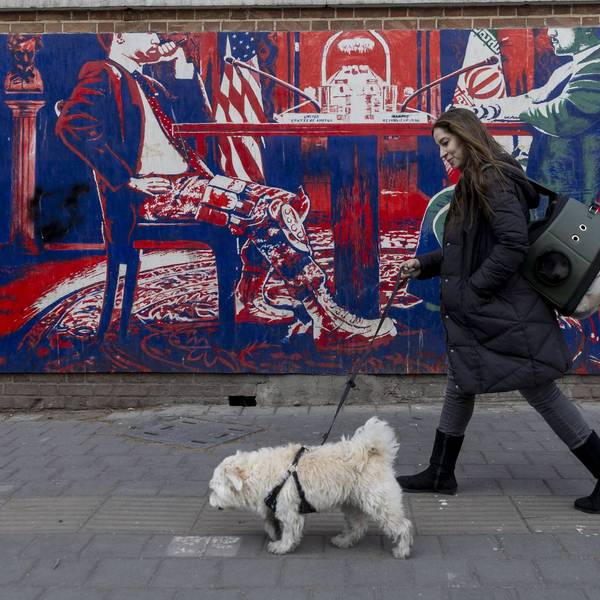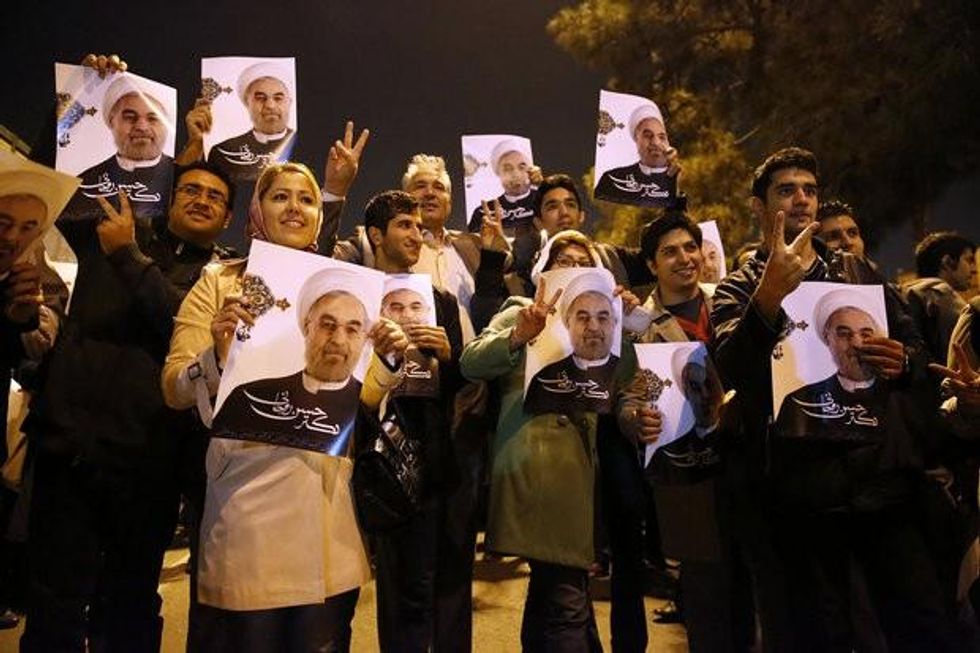Whether by design or accident, the nuclear deal struck in Geneva this past weekend is about far more than centrifuges, enrichment and breakout times.
Ultimately, the success of the nuclear negotiations will help determine who and what will define Iran for the next few decades.
Will Iran be defined by the confrontational and bombastic approach of its former President Mahmoud Ahmadinejad and the conservatives around him? Or will it be defined by the more open and moderate approach of its current President Hassan Rouhani and his energetic and respected Foreign Minister, Javad Zarif.
A lot is at stake. A comprehensive nuclear agreement that provides the Iranian economy with much-needed relief, retains enrichment on Iranian soil and upholds Iran's sense of dignity will significantly strengthen Rouhani's team and force the conservatives to lose even more political ground. Rouhani will have demonstrated to Iranians, for the first time in a long time, that moderation can pay off.
The crowd cheered as Zarif arrived at the Tehran airport after the negotiations in Geneva. The slogans they chanted revealed Iran's new political winds.
They praised the leader of the Green Movement, Mir-Hossein Mousavi, as well as former moderate Presidents Mohammad Khatami and Akbar Hashemi Rafsanjani. The crowd also called for the release of all political prisoners, placing opponents of diplomacy in the same camp, "Kayhan [Iran's main conservative paper], Israel, we offer our condolences," they said.
The sense that Iran has won something without surrendering its rights and dignity was reflected as well. "Neither war, nor sanctions, nor insults, nor submission," the crowds chanted as Zarif's motorcade left the airport.
Ahmadinejad, in contrast, did not achieve this objective.
An Iran that is defined by the win-win paradigm of Zarif and guided by Rouhani's moderation could be a game-changer in the Middle East.
The domestic political situation may open and revive the Iranian civil society - long a key driver of political reform and democratization. This educated demographic had thrived under the Khatami presidency but been crushed by Ahmadinejad.
While there are still no signs of systemic change in Iran's human rights record, the public is pressing Rouhani to address this critical issue. The pressure will likely increase now that the nuclear issue is being dealt with. The chants at the airport calling for the release of all political prisoners were a stark reminder.
Now that the long shadow of the nuclear issue no longer separates Iran from the United States,there may be opportunities for diplomatic solutions in Syria. There can also be collaboration to stabilize Afghanistan, as well as a a general shoring up of regional security.
In Syria particularly, the resolution of the nuclear issue can pave the way for Iranian participation in the Geneva conference. Though this is unlikely to please Iran's regional rivals Saudi Arabia and Israel, few believe that a lasting solution in Syria can be reached without Iran's active engagement.
Iran and the United States can also now begin to collaborate in earnest against a common strategic foe - al Qaeda and the Salafist forces that are ravaging the region and spreading terror globally.
As I have written in Foreign Affairs, improved U.S.-Iran relations can help moderate Iran's position on Israel. Tehran knows it cannot have a durable deal with Washington without changing its conduct toward Israel's interests. A successful nuclear deal can become the first step in a long and arduous - but necessary - journey to break the institutionalized enmity between the United States and Iran.
Iran may not be a U.S. friend for years to come. But beyond a nuclear deal, President Barack Obama may have ensured that the U.S. will have one less enemy in the Middle East.




